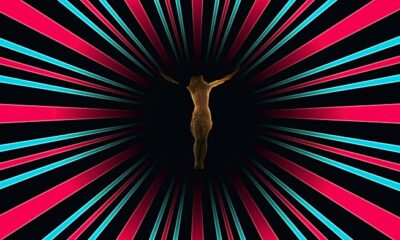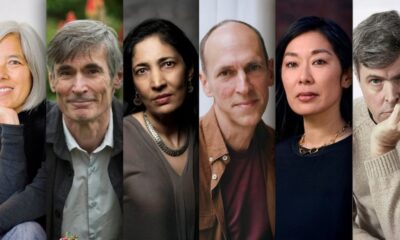Culture
Listen to the Land Speak: Manchán Magan on his journey of return
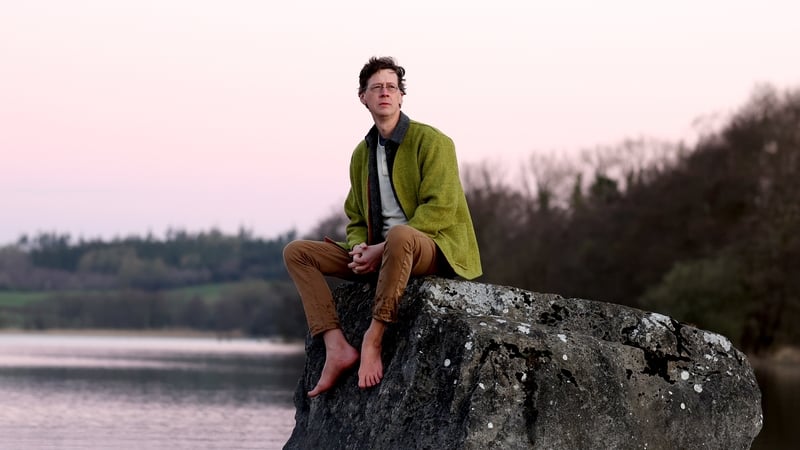
Read more on post.
Manchán Magan introduces Listen to the Land Speak: A Journey of Return, his new two-part documentary, which premieres on RTÉ One this July – watch now, via RTÉ Player.
The series unfolds from Winter Solstice to Bealtaine through Reek Sunday to Samhain, exploring how the stories and myths associated with the rivers, mountains and lands around us are crucial to unlocking aspects of how we need to rebuild our relationship with nature today. But it also becomes an unexpectedly personal story as Manchán realises that there is a serious illness within himself that makes him see these ancient sites and beliefs in a whole new light.
I often think of Ireland not as a country, but as a kind of spell, if that’s not too New Agey a concept—an incantation woven of story, stone, and memory. And yet, for so long, many of us forgot how to listen.
We turned away from the wells, the oaks, the cairns, and the sacred threshold sites which are scattered all around us. We forgot that rivers are goddesses, that bogs are memory stores of the past, and that there are songs embedded in the stones.
This documentary series, Listen to the Land Speak, grew from that forgetting—and from a desire to remember.
Like the book that gave birth to it, the series is a kind of pilgrimage: a journey through ritual landscapes and ancient stories, and through my own reckoning with life and death. I never set out to make a film about cancer or mortality. I set out to celebrate the ecological and mythological consciousness embedded in our land. But what emerged is more intimate. The land doesn’t shy away from the dark.

In collaboration with director Maurice O’Brien and producer Zlata Filipovic, we set out to visit some of the sites where I believe the true soul of Ireland can be found.
At midsummer light, at the largest stone circle in Ireland beside Lough Gur in Co. Limerick, something shifted. I was drawn out of myself, as if by design. I wonder were such sites imbued with that precise intention—to pull us into communion with the sun and the self?
I set out to celebrate the ecological and mythological consciousness embedded in our land. But what emerged is more intimate. The land doesn’t shy away from the dark.
These ancient places were not mere shelters or forts. They were sites of celebration, revelation, connection. Take Dún Aonghasa on the Aran Islands. Mainstream archaeology tells us it was a Bronze Age fort. But when you stand there, with the Atlantic opening before you and the sun sinking into its depths, the sense in your bones is that it was surely built for worship, for revelry – maybe even, for raving.
The series moves in seasonal cycles, as our ancestors did—from Imbolc to Lúnasa to Samhain to Bealtaine. These are not just names on a calendar. They are invitations to align with rhythms deeper than clocks. Each one offers its own truths: the stirrings of spring, the gratitude of harvest, the shadowy threshold of Samhain, the ignition of Bealtaine fire.
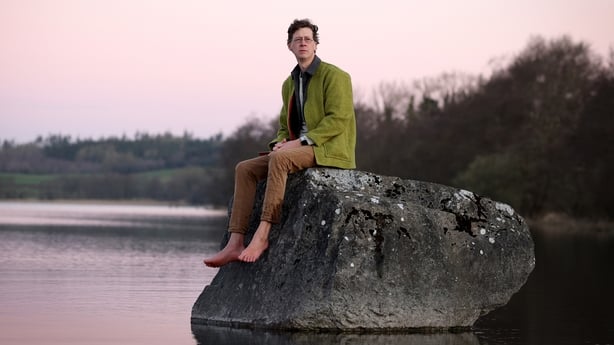
In Irish, our words describe not categories but qualities. A spider is “damhán alla,” a little ox of the wall. A snail is “seilide,” a little spit thing. These aren’t quaint oddities. They’re insights into a world seen with reverence.
As we filmed the series I was also facing my own mortality. The brokenness in our culture, our estrangement from the land, mirrors the brokenness within us. Healing—of soil or soul—requires attention, humility, love.
There is something healing about returning to oak groves, sacred wells, rituals. One woman I spoke with has visited over 1,400 holy wells. These are not relics. They are active sites of devotion. Each well holds its own spirit.
Climate collapse is real. Cultural loss is real. But so is this surge of remembering.
That’s why I think of these films not as documentaries but as invitations. If we can listen—truly listen—then the land will speak. It already is.
Listen to the Land Speak, RTE One, Thursday 17th and Thursday 24th July at 10.10pm – catch up afterwards via the RTE Player.
Culture
The last day of doomsday: What is the viral ‘RaptureTok’ trend?
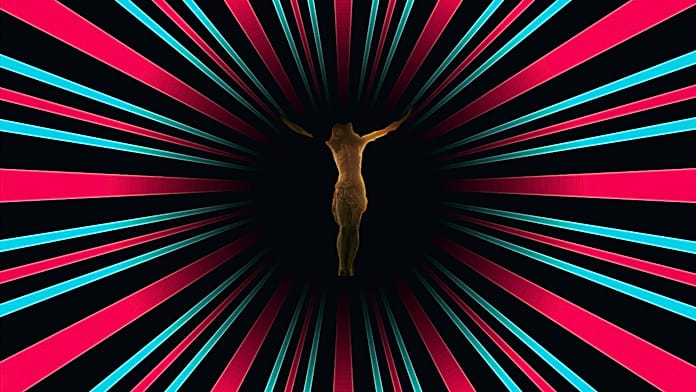
Read more on post.

ADVERTISEMENT
If you’re reading this today, Wednesday 24 September 2025 could be the last day before the end of the world as you know it.
If you’re reading this tomorrow, you weren’t blipped out of existence and good luck with all the rebuilding. Please do better.
Confused? We’ve got you covered.
According to the more holy corners of TikTok, it has been prophesized that yesterday – or today, they couldn’t make their minds up on which one, so just go with it – is the day of the Rapture.
For the filthy heathens among you, that’s the long-awaited end-time event when Jesus Christ returns to Earth, resurrects all dead Christian disciples and brings all believers “to meet the Lord in the air.”
It wasn’t yesterday, clearly, so today’s the day… And turn off that R.E.M. song, this is serious.
This all stems from South African pastor Joshua Mhlakela, who claimed that the Rapture will occur on 23 or 24 September 2025. Mhlakela said that this knowledge came directly from a dream he had in 2018, in which Jesus appeared to him. Mhlakela reiterated all of this on 9 September in an interview with CettwinzTV and since then, the prophecy has become a viral sensation on TikTok.
Many individuals on the social media platform have taken this literally and very seriously, with more than 350,000 videos appearing under the hashtag #rapturenow – leading to the trend / popular subsection dubbed ‘RaptureTok’.
Some videos mock the prophecy, but you don’t have to scroll for too long to find those who are completely convinced that it’s happening today.
There’s advice on how to prepare; tips on what to remove from your house should certain objects contain “demonic energy”; and testimonies of people selling their possessions. One man, who goes by the name Tilahun on TikTok, shared a video last month, in which he said he was selling his car in preparation for the big day. “Car is gone just like the Brides of Christ will be in September,” he said.
One woman in North Carolina was live recording yesterday from the Blue Ridge Mountains, fervently keeping an eye on any holy activity in the sky. Another claimed that her 3-year-old started speaking in Hebrew, thereby confirming that it’s all legit.
Some more distressing videos include American evangelicals saying goodbye to their children for the last time… We won’t share those, as they’re actually quite depressing.
It’s hard to completely blame TikTok users for wanting the final curtain to drop, as things aren’t going too great down here on Earth. That being said, it’s worth noting that the Bible never actually mentions the Rapture; it’s a relatively recent doctrine that originates from the early 1800s, one which has gained traction among fundamentalist theologians – specifically in the US, where everything is fine, civil conversation is alive and well, no one’s worried, and they’re all enjoying their “God-given freedoms”.
So, if the Rapture does come to pass, we here at Euronews Culture will be eating a whole concrete mixer full of humble pie. If it doesn’t, see you tomorrow, and do spare a thought for those who are going to be very disappointed on Thursday 25 September.
And if extra-terrestrial beings followed Tara Rule’s advice (see below), thank you alien visitors for joining in on the fun. And if you could provide some much-needed guidance on how to do better, that would be grand.
Only a few more hours left to find out…
Culture
‘Dawson’s Creek’ reunion sees James Van Der Beek make surprise appearance amid cancer battle
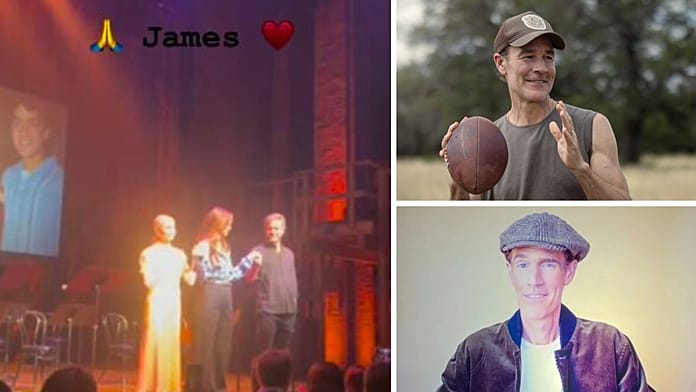
Read more on post.
N(Wڎ:sgtTE=5WWyMUC%Ejxѝ8l”SМ@1R!m@5@(*F5(7s”7׳|5KY͒4O|_uNuxYbN@)IeUgJUYod8g&(cwyCphg_{j,nڗx0[?$bY,,%V”PzgQ-PQz(,~VZho7=9″Uh%27tiNӘM+e@laT:;$N8WI`V3(ۍ&yZ*.kʓJܿzv$C:|y/#9yħE[xq)l!ni[Ù$)Ir8P)IcܚoI$OI|q2d|WaW)Y{PFZVϺNOZ6Aٜ)I�6q$9KOY
[sW|u#U+Y/Nk1hhƧIp, t(nخ[
WMRh#Q,gw
z!li &baP{/λO=%T^i#@η~ݖ|UKFlYn 6Oo~_NFm ѝڑ|t̕O;l(ظq-@e&KiTk=%Zg̰!ys&�PNR7 DWi։�ʌ/X40
$
nȅ”x˺#]; 84]6=zۛ|ϲ!`znH0LS%ߺ^i@r, bc-Cq”
Q?ǾcD$;W!Y`@’I2$b7$^JF
MŤ3zd”>CEC5~U-sJj8=^0|iHBuq#”P=]l`Tyxޢk#Y# -A %A1}=4rGl J:4 =A)YSZCXg7`xt!lФY(2>]Kp.z”(‘2Lʈ4iQ.fYh�Ik$t�ʳ%3bVoS`gq.vy.wo�t5Z3KRa6n2*[TiKNiEJ;ZۣPaFX,Ê&vHze@F:
*?l�I}]9$*2Xĥh5DKkp1U g;H”s3Cg�H Vգ,pka$4 ThlCkJW`$˵# hU*VjOK”νQ&a
iՑHI|➎L4+tqԵ1�w,/PGEr$Y6+O..#ٳrqBvZ95^&*)GNI(aFòF9ߏJGءr>rƫ
,Z&H:d05hhW:*t&.”ji锖5V=_iM(AK2ɂÙ7bMѡ0±VU}{ORDL)un#존vAbTi@jIuIYT}8
x”xxD*#pldt’]b8Q強JC^/A5/d9�$0r87 E@鰉vU
GbI ;F=c˙,hξ!{la$9} 9ʂ&}ftS8sʄcwIVi’@PbrɳlNl)3MoS8t@ogvl%1ZEʈR$8L)IҾTr&:xtoV@}9m7Ш#+:�5/DmT:|-Jlk&iRQ3+r2/5#�ި4!!qfZ[N w찣sD5b[N”Wu ·_^kVN/8FJ&SpE8sL+s v)’_~[pԷNm(rӀ>]ctR_hO!a;!T8Mga/Mұ;nKض0Tpk8M}’h3dja۞*UWF~6ZyfV’-o(Eϔsg_fu0GMeȭZ, gn(A?PUX@^g.L$4 ΞNqCzS’j1v2Kߨ3YG:#o8oZ.c1lm’UׯG4 BY=(v]aLSJlQg#L+’n]bzOP{l}*dr$ĆQ22x߿pnoAl-ԇUCx`*(1gХ)&Bғ$_7DvҒ>RăJ2РFpl1w먤
HW&q}N/ꃿO9Xz$)S8ii600]-w=2GEcEPE!9te)LI1i$9Q@+`ÿ }&bY`WM+.WZ.qO}?ֳ(6ʔM[98GNm[Gݦ3(c3էNЖ]Urb^YQ@2O#.*xMM�EG*>K@nSBIeTo,x^%z/sJy3ྍITEsAqV0”I&eTqZ.
kQqױq’ 2ΉΫ:FJ vz8oQ/T2I*0a𠘅GF^KPtQIJMʽ!?̾Yk/UmիO”A?KVBOY!@Pȃ|}eY)_UL8OK4~4eik/+[V#q]i|JbHi!,Ǒ`QxhlRf1iIi1^י’%y$3j$Jw(ېBDY’ivW-Y{2aT(Vk|U=~j~%”NyːQ{[bhlCw0{JRv?XH|+z
AUD+Uct,uAUbY3#}TXjx”/*ցZYdjeD y
!ZIH{f&@^l`*4ƥ1_jMY0==x1KeLZ”/,/&ٹxd[b](C3B*ɝ7
Ϝ;Z|e`Ie.
t}9U5-./ʤΫ圍NƝ5B^8%ZLbp7hs0y kIrLd”-Uβտ%:F̥ꗕl۽sPwR.P~~2 .}neb{!6՚?6H? J }=azc’ GUhzůi|Esr!x!tWA%Ⱦ%VPF##W=d&1]k0bۼ:y88Qh=62uMH#t4N,l@$/dqQkA]dɔ i>y7_@2MTh}I_p;oM8k=0P,ˈ_ZT&:գquE*Y΅vT|iU: _Q
7BJY{zW%~Kٷӫ7ov?[ 94u?ֿp|(%DE32ܢg?f|CNAq'{
PddUww(zSցU/#?4|4[A
Ծ 8
W-.>}^€͖}#YL[a0+QI(lUcP;OdA,EF
`.E mўnTlzu
@k^&|jthAݛo)(ldΓtKy>I4q^I2{6E==ZN”uq” Ag,l�}xnww>xT[rmHPeKzuQdv8_HEzo4″Úϓ#ۑ�
CɁ&N~>aŪ5
6ZU-BpzoS#7X9vQpi֤�zP>(ZX/?$ǐ߲Z”y L2ʛbzI!tPye4AC`sKKѼV?Pq]1t-Α$] ;wQBgP枦qqnaI
ݧ۫Kx;9Kv?}xy緗r~
o돷3w
V9cIIi)W=|xCJr? BAɔu,Lst`|pxO)?`CiK””!XdJẃ*pZif,V~
?lӰ[CLrQkW|$ȸaKqT!(r8S&wT|b k*!=*ZwJҚFPtJ [t(r!ģJ*r>UÖrv2*l9p’gEC;L
˔
@Ѭu9^}ZJwSׯA9pڔI;fKd9ЏܠkCI >+SĿԠ&W];j�f=898ctPЬ#?k|ta릟2ThLܒ]ʘ}QNe8y:ZDzmokLCZ0>Y8ao)Ԟ
F5Fh7b_kdkE8{/7JkV:o8Lդ$є,kwFM
ǫ4d/ji-zjՌHQ*RiA+
Z| U
^9B}lhkuRs8:jpn %ӉvSOۨ˳-4ULfw7}r@U%4*p&LS0,pף|04h,P
H$H7$mRiᇾFd
Culture
Booker Prize 2025: Kiran Desai, David Szalay and Andrew Miller among shortlisted authors
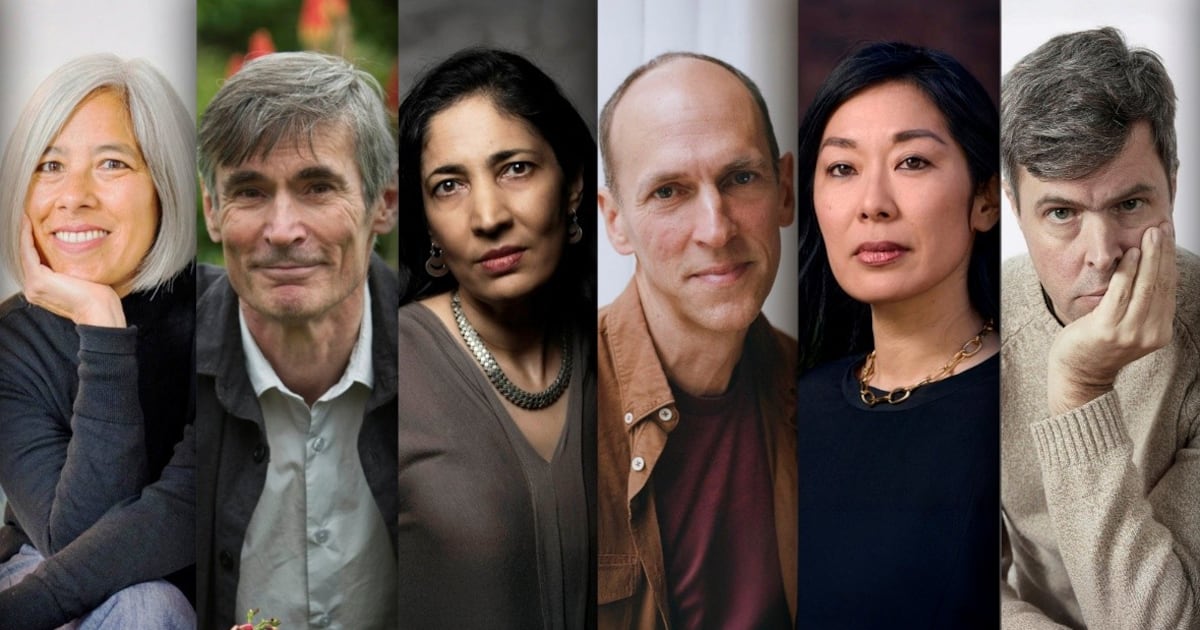
Read more on post.
This year’s Booker Prize shortlist features an epic globetrotting love story between two young Indians; a man in the throws of a midlife crisis who undertakes a road trip across the US; a successful actor whose life is thrown into dissary by the appearance of a man who may or may not be who he says he is; the impact of an East Asian immigrant’s mysterious disappearance in the US on his wife and daughter; the story of two couples struggling with the legacy of the second world war in rural England; and the rags-to-riches story of a man born in a housing estate in central Europe who ends up in the mansions of London’s super rich.
Established authors dominate this year’s shortlist with half of the nominees – Kiran Desai, David Szalay and Andrew Miller – having all been shortlisted previously. Desai won the Booker in 2006 for The Inheritance of Loss while Miller was nominated in 2001 for his novel Oxygen. Szalay was nominated in 2016 for his novel All That Man Is.
This year, Miller is nominated for his book The Land in Winter, Szalay for Flesh and Desai for her novel The Loneliness of Sonia and Sunny. The other three shortlisted authors are Ben Markovits for The Rest of Our Lives, Katie Kitamura for her fifth book Audition and Susan Choi for her novel Flashlight.
No Irish novelists made it to this year’s shortlist but the judge’s panel was chaired by Irish author Roddy Doyle, who won the prize in 1993 for his novel Paddy Clarke Ha Ha Ha. The other judges were novelists Ayọ̀bámi Adébáyọ̀ and Kiley Reid, actor and publisher Sarah Jessica Parker and critic Chris Power.
Booker Prize 2025 shortlist
- Flashlight by Susan Choi
- The Loneliness of Sonia and Sunny by Kiran Desai
- Audition by Katie Kitamura
- The Rest of Our Lives by Ben Markovits
- The Land in Winter by Andrew Miller
- Flesh by David Szalay
Half of this year’s nominated authors are Americans – Choi, Kitamura and Markovits – which remains a bone of contention for some. In the 12 years since US authors have been eligible they have taken 27 of the 72 shortlist places but only won twice. While this year’s other shortlisted authors are Hungarian-British author Szalay, Indian author Desai and British author Miller.
Should Desai win, she would be the fifth person to win the prize twice and it would mean that India would complete an unprecedented sweep of 2025’s Booker prizes, after Indian author Banu Mushtaq and her translator Deeoa Bhasthi won the International Booker Prize earlier this year for their short-story collection Heart Lamp. In 2015, the Economic Times listed Desai as one of 20 most influential global Indian women.
Choi’s novels have received much recognition over the course of her literary career. She was a finalist for the Pulitizer Prize for fiction for her 2003 novel American Woman and a finalist for the 2008 PEN/Faulkner Award for Fiction. In 2013 Choi received a Lambda Literary Award for her fourth novel, My education, and her fifth novel became a US bestseller, winning the 2018 National Book Award for Fiction.
Kitamura is best known for her 2021 novel Intimacies which was selected as one of the New York Times’ 10 best books of 2021 and was longlisted for the National Book Award and PEN/Faulkner Award. Kitamura’s book Audition, shortlisted for this year’s Booker Prize, is currently being adapted into a film by Lulu Wang starring actor Lucy Liu.
Szalay’s debut novel, London and the South-East, won the Betty Trask and Geoffrey Faber Memorial prizes while his 2016 book, All That Man Is, was nominated for the Booker and won the Gordon Burn and Plimpton prizes for fiction. He has also written several BBC Radio 4 Dramas, most notably the collection of short stories Turbulence.
Markovits is a former professional basketball player who is best known for his novel the You Don’t Have to Live like This which won the James Tait Black Prize for Fiction in 2016. Markovits was selected as one of Granta’s Best of Young British Novelists in 2013 and was a fellow of the Royal Society of Literature in 2018. He currently teaches creative writing at Royal Holloway University of London and continues to publish essays, stories, poetry and reviews in publications such as the Guardian and New York Times.
Miller, a journalist and author, is best known for his acclaimed historical novels. His debut novel Ingenious Pain, about an 18th century Englishman born without the ability to feel pain or pleasure, won the James Tait Black Memorial Prize for Fiction and the International Dublin Literary Award. He also won the Costa Book of the Year Award in 2011 for Pure, a novel set in 18th century Paris. Miller has worked as a residential social worker and has a black belt in aikido.
“The six [shortlisted books] have two big things in common. Their authors are in total command of their own store of English, their own rhythm, their own expertise; they have each crafted a novel that no one else could have written,” judge Roddy Doyle said.
“And all of the books, in six different and very fresh ways, find their stories in the examination of the individual trying to live with – to love, to seek attention from, to cope with, to understand, to keep at bay, to tolerate, to escape from – other people. In other words, they are all brilliantly written and they are all brilliantly human.”
The judges will now read the shortlisted works for a third time and the winner of the £50,000 prize will be revealed at a ceremony in London on November 10th.
-
Breaking News1 day ago
Barack Obama to be conferred with freedom of Dublin at ceremony on Thursday
-
Culture1 day ago
Taylor Swift’s new cinema outing generates more than €12million in just 24 hours
-
Breaking News1 day ago
Opinion: To be or not to be? Why it is time to drop Shakespeare’s compulsory status in Leaving Cert
-
Breaking News1 day ago
Minister rejects proposal to make Shakespeare optional in Leaving Cert English
-
Breaking News1 day ago
Families at risk of homelessness may have another chance to avail of tenant-in-situ scheme
-
Travel & Lifestyle2 days ago
The Best Way to See Rome? On a Running Tour at Sunrise
-
Business21 hours ago
JLR shutdown extended again as ministers meet suppliers
-
Politics1 day ago
European Parliament snubs Orbán with vote to shield Italian MEP from Hungarian arrest


